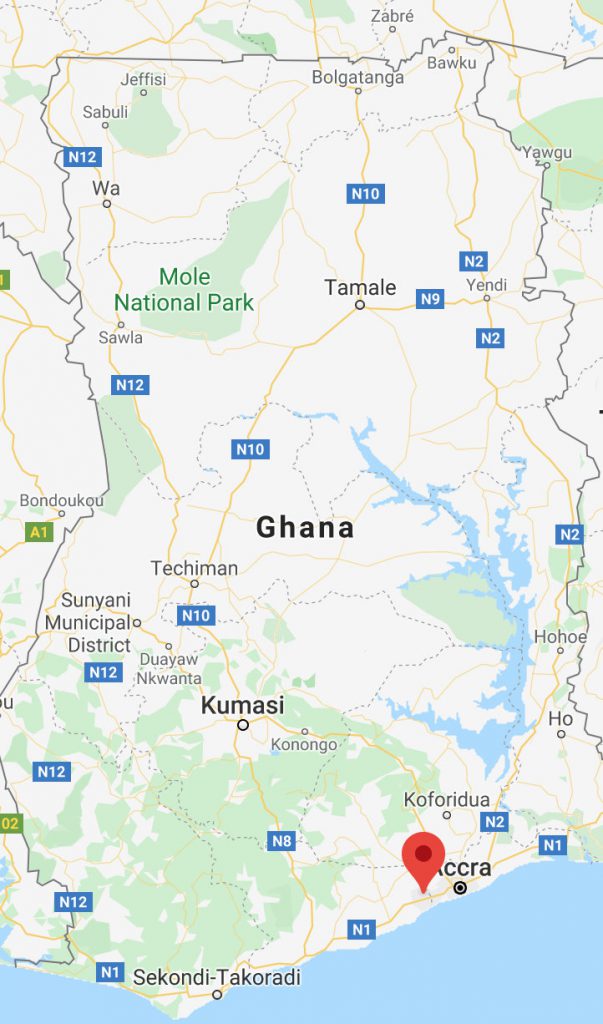Ghana
At this point we would like to give you some insights into the life on site and the people who have moved us so much. The smiles of the children alone can brighten up your day, but there is much more you should know about Ghana:
300 million people in this sub-Saharan part of the African continent (Ghana is one of them) live in extreme poverty. According to the definition of the World Bank, a person in extreme poverty is someone who has an income of less than one dollar per day. Poor in the broader sense is anyone who has an income of less than two dollars a day.
A life in Africa means far too often:
- Lack of food
- Permanently endangered health (not least due to lack of access to clean water
- Low chances of receiving an adequate education.
These and other factors result in by far the highest child mortality rate in the world. In 2001, an average of 173 out of 1000 children died. The main causes of this terrible figure are infectious diseases in miserable living conditions. Women and children, the rural population in general, and people who find themselves in dire circumstances are at above-average risk. (For example refugees or HIV / AIDS sufferers).
With almost 20 million inhabitants, Ghana is an above average African country and a country rich in resources. Gold, cocoa and wood are important goods. Although Ghana is one of the world's leading producers of gold and cocoa, strongly fluctuating world market prices have increased its external dependencies. With our projects we try to move the development in a positive direction. That means "education" + "health"!!!!
Ghana was one of the first countries in sub-Saharan Africa to achieve independence in 1957. In the postcolonial period of awakening Ghana was considered the "highlight", which changed with the later economic decline, corruption problems and political upheavals.
However poverty is still one of the country's main problems. Almost half of the population has to live on less than one US dollar a day and about eighty percent of the population has less than two US dollars a day at their disposal.
The Education Act of 1961 enshrines the basic right to education. After gaining independence, Ghana's education system was long considered one of the best in Africa. This changed when Ghana experienced an economic crisis in the mid-seventies to mid-eighties, which had a strong impact on the social sector.
In principle, all children in Ghana have the right to nine years of schooling. Ghana abolished school fees completely between 2004 and 2005, which caused the number of children enrolled in public primary schools to rise from 4.2 million to 5.4 million within two school years (BBC News 2006). A great success on the road to education for all.
However, there are still many families who do not send their children to school because they cannot afford to pay for transport, books, school uniform or materials. The abolition of school fees is also accompanied by the challenge of solving problems such as overcrowded classes, lack of teachers, financial difficulties caused or aggravated by higher numbers of pupils. The most widespread form of education is the six-year primary school. The education at primary schools is complemented by the three-year Junior Secondary School, which ends with the Basic Education Certificate Examination (BECE).
